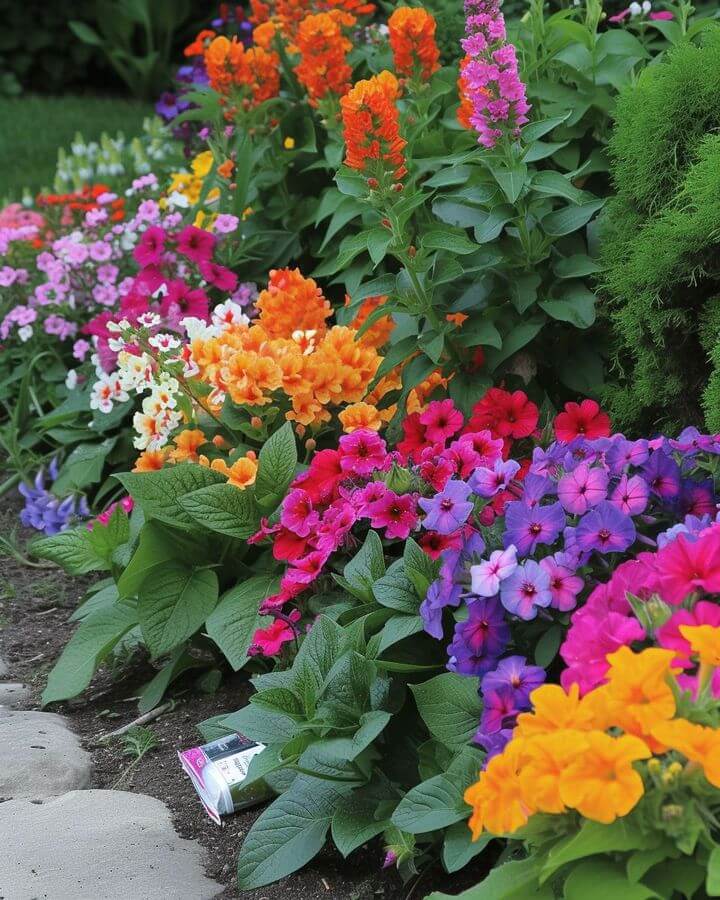Epsom salt, or magnesium sulfate, is a natural mineral compound widely recognized for its many uses in medicine, beauty, and household cleaning. However, its role in gardening is particularly valuable, making it a go-to solution for many gardeners. While it may not address every gardening challenge, it is an effective and versatile supplement that can significantly improve plant health and soil quality. The two key components of Epsom salt, magnesium and sulfur, are essential nutrients that promote healthy plant growth.
1. Enhancing Soil Nutrients
Epsom salt is an excellent natural amendment for soil, providing much-needed magnesium and sulfur. These nutrients are vital for soil fertility and help plants thrive by supporting processes like photosynthesis, enzyme production, and overall growth. Magnesium is especially important for the creation of chlorophyll, the green pigment plants need to convert sunlight into energy.
2. Boosting Seed Germination
Sprinkling Epsom salt on the soil before planting seeds can enhance germination rates. Magnesium strengthens the cell walls of seedlings, promoting healthier, stronger plant starts. This helps establish a solid foundation for the plant’s growth, resulting in more robust and vigorous plants as they mature.
3. Improving Nutrient Uptake
Magnesium plays a key role in creating conditions that make it easier for plants to absorb essential nutrients such as nitrogen, phosphorus, and sulfur. A magnesium deficiency can lead to stunted growth and overall poor plant health. Using Epsom salt can help prevent nutrient lockout, a condition where plants struggle to take in the nutrients they need.
4. Easing Transplant Shock
Transplanting can be a stressful experience for plants, often leading to transplant shock. Applying Epsom salt around newly transplanted plants can help alleviate this stress. Magnesium encourages the development of new growth, which aids in the plant’s recovery and speeds up the acclimatization process.
5. Acting as a Natural Pest Repellent
While not a complete solution for pest control, Epsom salt can act as a deterrent for certain pests. A light sprinkle around the base of plants can discourage slugs, snails, and other critters from feeding on your plants, all without the need for harsh chemicals that could harm both the plants and the environment.
6. Enhancing Flower and Fruit Production
Epsom salt can also promote better flower and fruit production. When applied during the flowering stage, it helps plants produce more vibrant flowers and larger fruits. Magnesium is an essential nutrient for fruiting plants, and its presence encourages abundant fruit production, making this a valuable tool for gardeners who want to increase yields.
7. Greening Your Lawn
For a lush, vibrant lawn, Epsom salt can help improve the green color of the grass. By aiding in the production of chlorophyll, it encourages strong, healthy grass growth. This can lead to a thicker, greener lawn that resists damage from foot traffic and helps reduce weed growth due to the increased strength of the grass.
How to Use Epsom Salt in Your Garden
To get the best results, it’s important to know how and when to apply Epsom salt. You can mix it with water to create a foliar spray or apply it directly to the soil around plants. However, Epsom salt should not be seen as a stand-alone fertilizer; it should be used in combination with a well-rounded gardening plan that includes proper watering, mulching, and the use of compost and organic matter. Before adding any supplements to your garden, it’s always a good idea to conduct a soil test. This ensures that you are meeting the specific needs of your plants and prevents the over-application of magnesium, which can be harmful. As with all garden products, moderation is important, and it’s essential to tailor your approach to suit the needs of different plants.
Conclusion
Epsom salt is a highly effective and versatile tool for gardeners. When used properly, it can improve plant health, enhance soil quality, and contribute to more vibrant, productive gardens. By incorporating Epsom salt into your gardening routine, you can experience significant improvements in your plants’ growth and productivity, making it a valuable asset in any garden.
